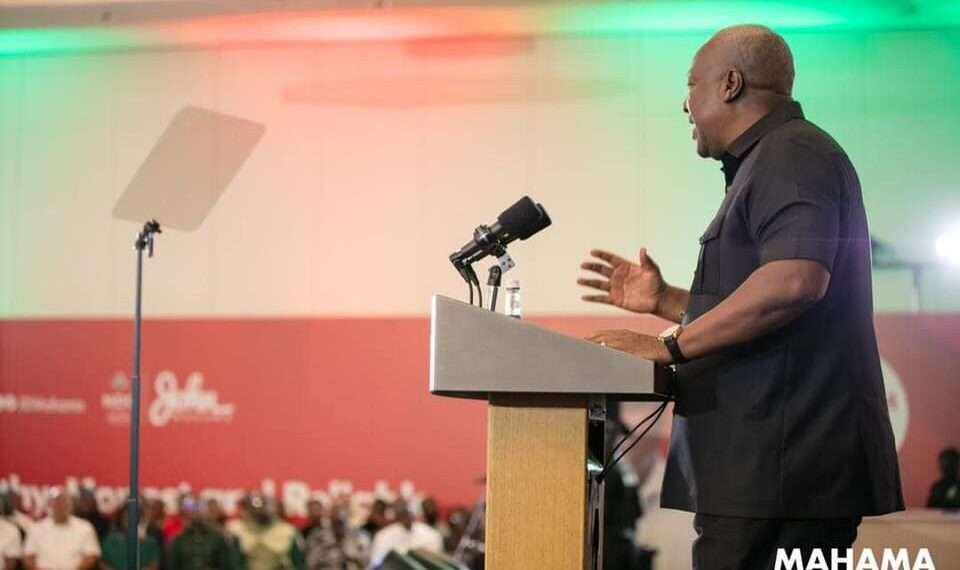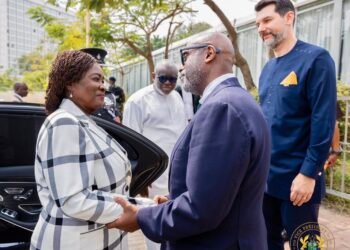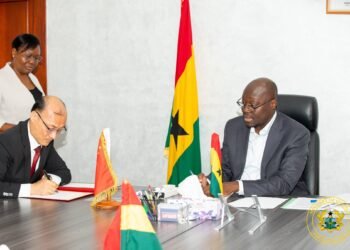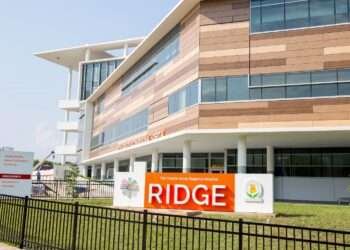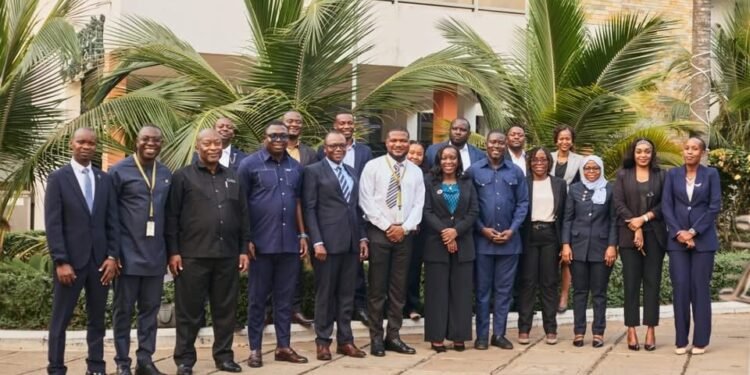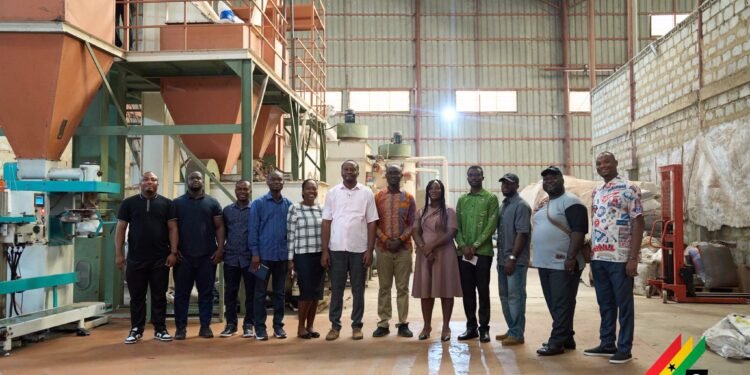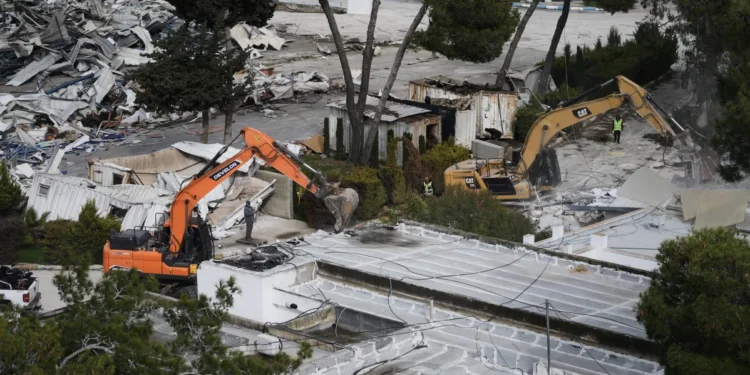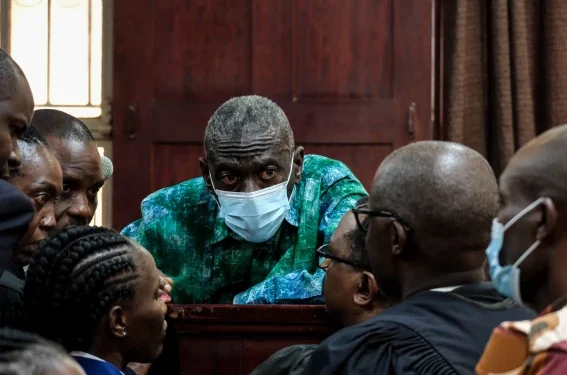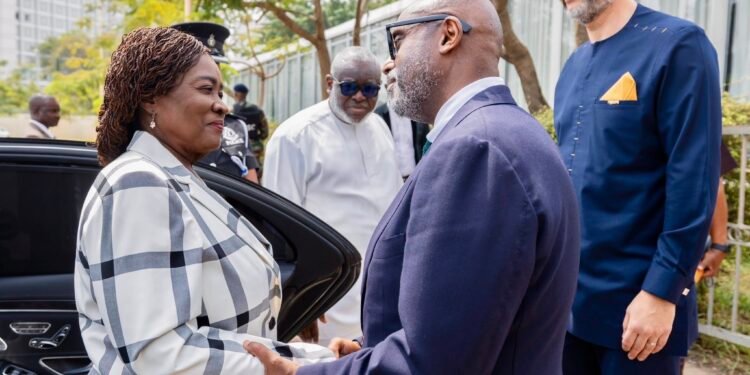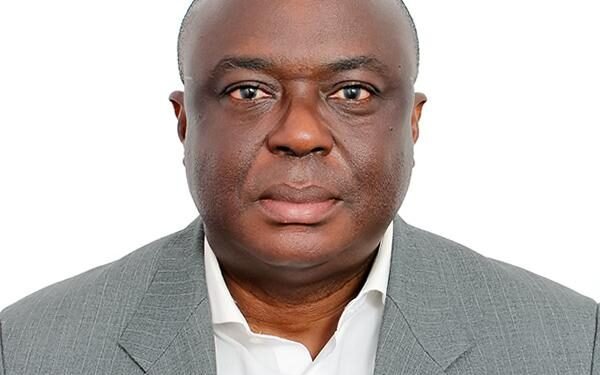In recent times, there has been a growing recognition of the critical role that media engagement plays in the political landscape.
The recent interaction between the National Democratic Congress (NDC) flagbearer, former President John Dramani Mahama, and the Ghanaian media has been widely praised by several media practitioners, leading civil society members, and academics.
The event has sparked discussions about the importance of transparent and regular communication between political leaders and the public.
Prominent individuals, such as Professor Kobby Mensah, a Political Marketing Consultant and Lecturer at the University of Ghana Business School, and Dr. Kwame Asiedu Sarpong, a fellow at CDD-Ghana have lauded former President Mahama’s initiative.
They have urged all political leaders, especially Vice President Dr. Mahamudu Bawumia, the leader of the ruling party, to follow suit. These endorsements highlight the value of media engagement in fostering transparency, accountability, and trust in political processes.
Dr. Ishmael Kwabla Hlovor, a Political Science Lecturer at the University of Education, Winneba, in a recent interview with the Vaultz News, underscored the crucial role media engagement plays in the political landscape of Ghana.
The renowned political scientist highlighted how media interactions can enhance transparency, accountability, and ultimately, the country’s democratic process.
Dr. Hlovor began by emphasizing that media engagement allows political leaders to effectively communicate their policies and visions to the general public.
“It is important we understand that political leaders need to give citizens the chance to understand the policies that they intend to pursue when they are elected into office. So if you look at what former President Mahama has done, is to give himself that chance, of selling, as it were, his policies to the general public.
“Why the media engagement is so important is that the media have the power to reach so many people at the same time. It gives visibility to the aspirant and the policies that the party intends to pursue when they win election”.
Dr Ishmael Kwabla Hlovor, Political Science Lecturer at the University of Education, Winneba
He stressed that consistent media engagement makes candidates more visible and provides an opportunity for in-depth interrogation of their policies, which is not always possible on campaign platforms.
Promoting Issue-Based Politics
One of the significant benefits of media engagement is the shift from personality-driven politics to issue-based discourse.
Dr. Hlovor pointed out that media interactions foster a political environment where policies, rather than personal attacks or ethnic loyalties, take center stage, adding that media engagements promote the politics of issues as they put the issues that affect all Ghanaians on the table.
This shift, Dr Hlovor indicated is vital for the maturation of Ghana’s democracy, steering political debates towards substantial and meaningful discussions on policy proposals and their implications.
Call for Broader Participation
Dr. Hlovor further underscored the need for all political figures, including vice-presidential candidates and smaller political parties, to engage with the media.
According to him, such interactions would provide a clearer understanding of their roles and contributions to the country’s governance.
“Let us hear them because these 2 are going to be mostly the vice president and the chairman of the economic management team. What are they bringing? Are they just part of the ticket for ethnic balancing, for party reasons; what are they bringing? They need to have some issues that are relevant to them when they assume the office of vice president that they also want to deal with.
“So it’s not only the presidential candidate. Even the vice presidential candidate must be seen to be having some of these media encounters to give us all some information because we need to process information and come to a certain level of understanding as to what direction we want to go so that in choosing them, we can make an informed decision”.
Dr Ishmael Kwabla Hlovor, Political Science Lecturer at the University of Education, Winneba
This approach, he noted would ensure that the electorate has a comprehensive view of what each candidate brings to the table.
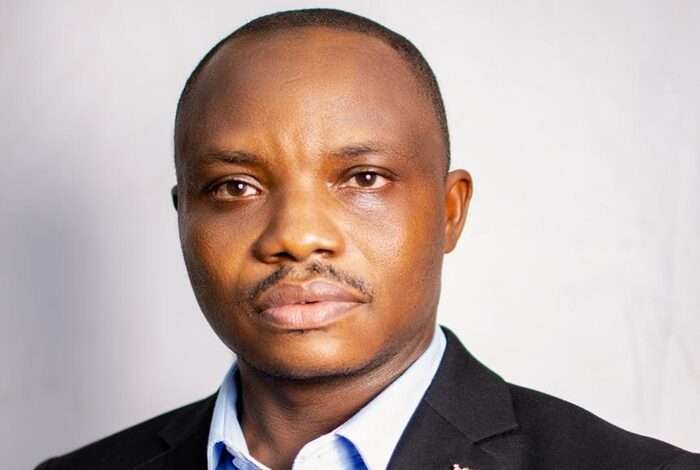
Strengthening Transparency and Accountability
Furthermore, Dr Ishmael Hlovor pointed out that regular media engagement enhances transparency and accountability in governance, asserting that it compels politicians to present well-thought-out and feasible policies.
He emphasized that the scrutiny helps in filtering out hollow promises and ensures that policy proposals are grounded in economic realities and practical considerations.
“I think that the most important aspect of media engagement would be that presidential candidates and politicians generally will find it very difficult to put out hollow promises; policies that are not concretely grounded in the evidence of our daily existence, policies that are not clearly, based on the situation we find ourselves in, and are not attainable, or are not something that can be pursued.
“So media encounters have a way of scrutinizing and helping politicians to refine themselves. In other words, when you consistently engage the media, over time, people will get to know that some of the policy proposals you are making are not economically viable. They are not grounded in our financial situation. You will be forced to abandon some of those hollow promises and promises that they know too well, that are just for the elections”.
Dr Ishmael Kwabla Hlovor, Political Science Lecturer at the University of Education, Winneba
Building Public Trust
Dr. Hlovor further pointed out that regular interaction with the media by political leaders allows citizens to critically evaluate the sincerity and feasibility of political promises.
He mentioned that “the ordinary man on the street will get to absorb and consume information through the media, adding that they make decisions based on what the person is saying”.
“We need to have a clear sense of where we are going from here. President Akufo-Addo has led us to a point where he has run his race, virtually run his race, and then somebody has to take over the mantle and we have to continue to run as a country.
“So in terms of how this will affect the ordinary Ghanaian, I believe that it gives the ordinary Ghanaian the chance to understand what the various parties and the various candidates are standing for. And that will help them to make some informed decisions as to where their votes will lie, where their interest will lie. So we must continue to have these encounters, and give the citizens the chance to evaluate the various options that are put forward by politicians”.
Dr Ishmael Kobla Hlovor, Political Science Lecturer at the University of Education, Winneba
This interaction, Dr Hlovor contended mobilizes the populace, making them more informed and engaged in the political process.
Impact on Democratic Governance
Highlighting the significance of frequent media engagement by political actors, Dr. Hlovor underscored that media engagement significantly strengthens democratic governance.
He pointed out that media engagement encourages politicians to focus on substantive issues rather than resorting to divisive tactics, asserting that this engagement will, over time, shift the political discourse from issues of name-calling to policy-based discussions.
“They give our democracy a very important flow to run on. They give our democracy the necessary information that will allow citizens to move away from some of the things that do not strengthen democracy such as ethnic-based considerations, and loyalty to persons and all those things. It provides an opportunity where citizens begin to be more critical, more analytical of information that politicians are putting out there. And if the policy is not well thought through, media encounters have a way of exposing it.
“So I think that in terms of strengthening our democracy, this is a very important tool. It’s an addition to all the other tools that we have, such as the public lectures, Dr Bawumia used to deliver. All these are ways of shifting the focus from a more, masculine, more kind of, street-level politicking where we mobilize people to dance and champ all over the place. Instead of that, you will now have the chance to speak to the real issues”.
Dr Ishmael Kobla Hlovor, Political Science Lecturer at the University of Education, Winneba
According to him, by fostering a culture of issue-based politics, media engagement contributes to a more informed electorate and a healthier democracy.
The Role of Civil Society and Academia
Finally, Dr. Hlovor advocated for a collaborative approach involving the media, civil society, and academia, calling for joint programs where experts contribute to media engagements that can enhance the quality of political discourse.
“We could have a joint program where academia, civil society, and the media come together to scrutinize and discuss the issues,” he proposed.
This partnership, he noted would ensure that political discussions are informed by research and expert analysis, leading to more robust and evidence-based policy debates.
In conclusion, Dr. Ishmael Kobla Hlovor’s insights underline the indispensable role of media engagement in Ghana’s political process.
By facilitating transparency, accountability, and informed public discourse, media interactions are vital for the health and progress of Ghana’s democracy.
As the country approaches future elections, the emphasis on media engagement by all political actors will be crucial in ensuring a vibrant and issue-focused political landscape.
READ ALSO: Nana Romeo Extols Sarkodie’s Accomplishments Over Obrafours

